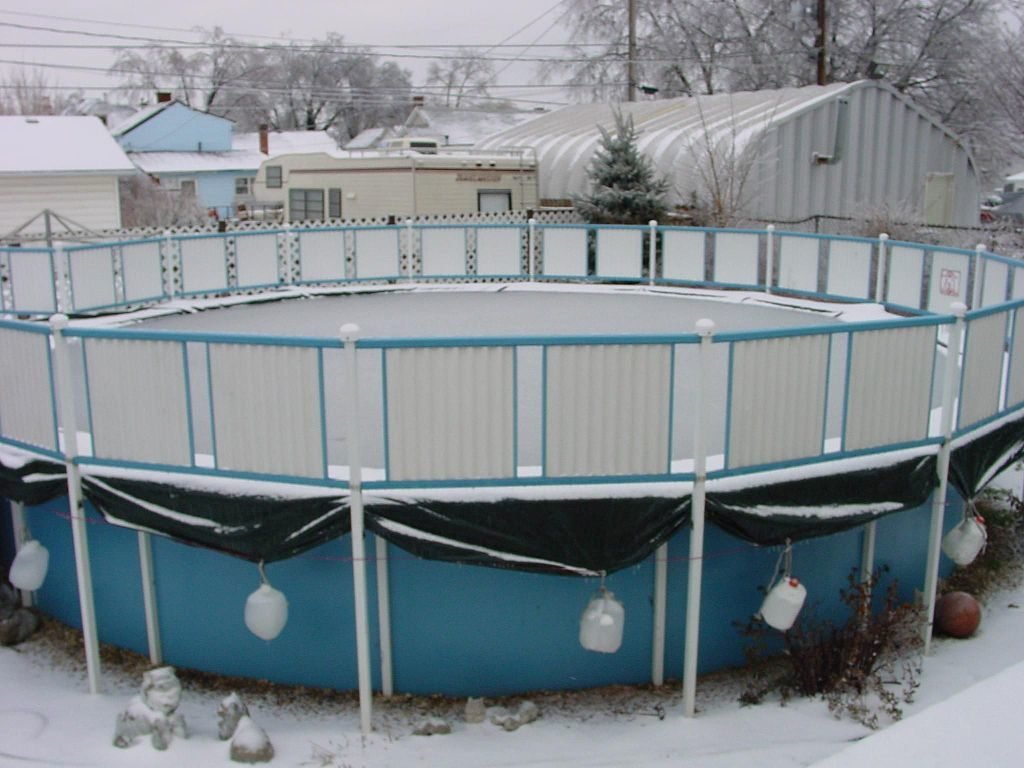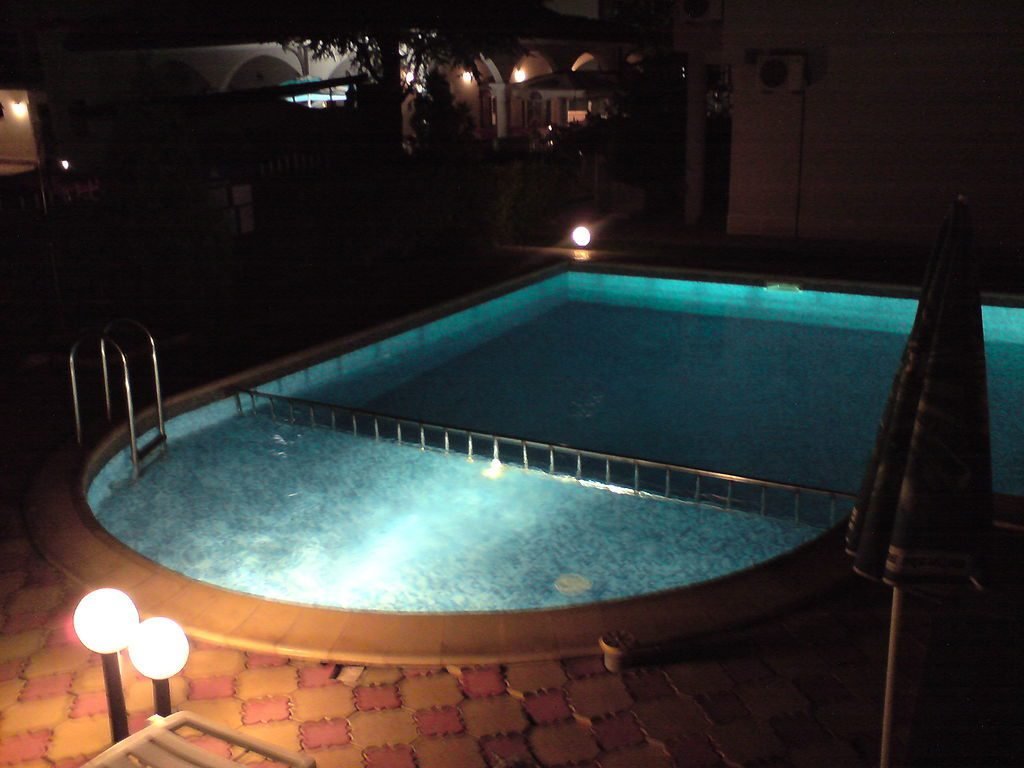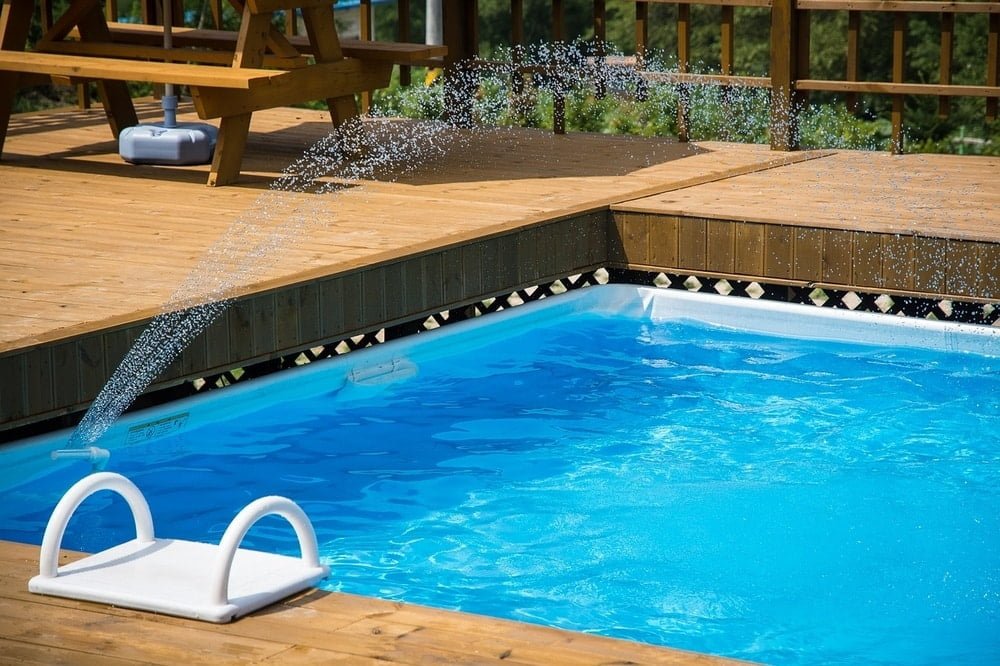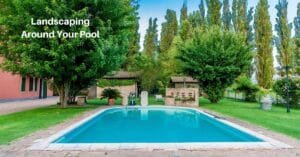Nothing beats having a pool to take a dip in on a hot summer day. When you can do that right in your backyard, it’s an awesome feeling. But if you don’t yet have a pool, you have a few decisions to make. The most important of these is whether you want an above-ground pool or the in-ground alternative.
There are several things to consider when deciding on a type of pool. The up-front costs are just one of them. Both types have advantages and disadvantages. Let’s dive in and have a look at what you should think about when making your decision.
Pros and Cons of Above-ground Pools
An above-ground pool can be a great option in a lot of circumstances. Nothing is perfect, though.
The Pros
If your space is limited, an above-ground pool is often the best option. These are generally smaller units. They can also be disassembled and reassembled, although this isn’t necessary for most circumstances.
Above-ground pools are, on the whole, less expensive to install and to operate than their in-ground cousins. You can even install an above-ground pool yourself with a little help from friends. It’s also a lot quicker to install.
But it’s not only the installation but also the materials that are less expensive. The same goes for operation. Since it’s likely to be smaller than an in-ground pool, it costs less to keep it running.
Even if you don’t want to take it apart every year, your above-ground pool is easier to get rid of if you decide you no longer want it.
What Size Above-Ground Pool Is Right For You?

The Cons
On the other hand, some of the things that can make an above-ground pool attractive are also some of its weak points.
It isn’t as durable or long-lasting as an in-ground model. It’s more exposed to the elements and made of less-solid materials. A tree falling on it or even extreme winds can do it irreparable damage. But even without these disasters, an above-ground pool will last only about 15 years, and the liner will likely need to be replaced after five to seven.
Because of their size, these pools aren’t able to host many people. You likely won’t be able to “swim” much, either. They’re great for cooling off, but don’t provide much room for exercise. They’re also shallow, so they’re unsafe for diving.
A last negative is that above-ground pools can lower your home’s value. They’re usually not considered attractive. And even though they’re easy to remove, they usually leave behind an unsightly area of dead grass in the center of your lawn.
Pros And Cons Of In-ground Pools
An in-ground pool offers a lot of advantages. It’s also got some things working against it, too.
The Pros
Overall, most people prefer the looks of an in-ground pool. Since the water is roughly at ground level, it can almost blend in. It looks a bit more like a natural water feature.
This also gives you more options for integrating it into your yard. You can have as big a patio as you’d like, add furniture around it, and decorate with all that space.
Since a pool built in the ground is supported by the earth around it, you can also have a much bigger body of water. That can be in terms of depth as well as surface area. You can even have a pool large enough to do laps or for diving.
The materials used to build your pool are durable, so your pool is going to last a long time. It’s built to withstand the elements. While concrete could crack, it takes a lot to do it. So unless there’s a severe earthquake or a large truck backs onto the pool’s edge, you should be fine.
A concrete pool does need resurfacing every 15 years or so, which can be expensive. However, as long as this is done, the pool will hold up indefinitely. A vinyl pool lasts a little longer than an above-ground pool, although not as long as concrete.

It’s also easier to design an in-ground pool and shape it according to your tastes. Circular or rectangular is fine, but you could choose kidney-shaped or any form you desire.
These qualities together mean that an in-ground pool may help add value to your home. Often, you won’t get back everything you’ve invested, but it’s still an increase over the base value of your home. But the pool may also discourage buyers who don’t want to deal with the maintenance.
Want to know how many gallons your pool holds, and about how much it will cost to fill? Head over to our handy pool size charts and calculator!
The Cons
However, not everything is coming up roses with in-ground pools.
They’re more costly to install, for one. An in-ground pool is designed as a permanent part of your property. It requires a real construction project, just as any other addition to your house would. That also means they take longer to get up and running.
Both types of pool need to be secured. But there might be slightly more danger with in-ground pools, especially for the youngest children. They may have trouble with ladders to above-ground pools. However, they could more easily make their way to an in-ground pool whose gate isn’t closed correctly.
If you live in an area that’s built on bedrock, you might even have trouble getting an in-ground pool installed.
Inflatable Pools
Inground pools are very permanent. Above-ground pools can last for years. But if you have less space or don’t want such a long-term commitment, you might want to try an inflatable pool. They’re smaller but still suitable for cooling off. Check out our recommendations of some of the top inflatable pools!
Which Is Easier To Maintain?
Maintenance between the pool types is a wash. Both require extensive work to keep them in shape. Gallon for gallon, though, they come out about evenly. You still have to clean them and test the water regularly. You may have to close them for winter, depending on where you live. Of course, a larger pool will mean more work than a smaller one. But sometimes a larger pool can be less sensitive to chemical changes since everything is more diluted.

Our Verdict
The choice between an above-ground pool and an in-ground pool can come down to budget, space, and personal taste. However, all other things being equal, we’d recommend going for an in-ground pool if you can.
The extra cost of the in-ground pool is worth it because of how it looks, the customization you can have in terms of size and shape, and its longevity. While it’s not worth adding one for the sake of increasing property value, it’s great for your own use. It also does add some value if you decide to sell later on.
But that doesn’t mean that above-ground pools aren’t good, too. They can be wonderful additions and can more readily fit into a budget and a limited amount of space.
Conclusion
When deciding what type of pool to buy, remember that both above-ground and in-ground pools have a lot going for them. Factors to consider include how long you want it to last, what your budget is, and your available space. When the dog days of summer arrive, you’ll love hopping in either one!









